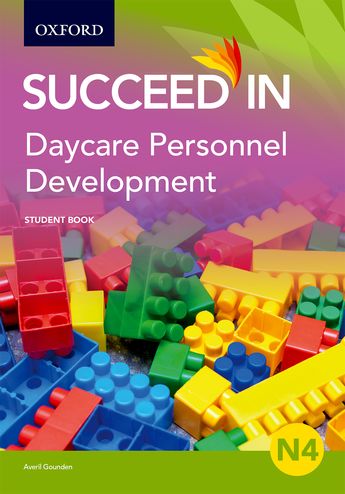Part 1: Daycare systems in South Africa
1Parental care vs daycare
2The role of daycare in the community and South Africa
3Classification of daycare
4Daycare centres with different objectives
5Effective daycare characteristics
6Competent daycare staff
7Daycare in other countries and international trends
Part 2: Layout of buildings and facilities
1Standards of buildings and facilities
2Basic requirements for indoors and outdoors
3Structuring the playroom for different age groups
4Layout of playground for different age groups
5Layout of garden and parking area for caregivers and deliveries
Part 3: Programme planning
1Importance and purpose of programme planning
2Factors to take into consideration when planning a programme
3Joint and individual planning
4Record-keeping of work
5Written lesson preparation for different activities
6Daily programmes for different age groups
Part 4: General administrative work
1Administration
2The need for administration
3Administrative work for the educarer
Part 5: Administrative structures
1Composition and duties of the Management Committee
2Duties of each Management Committee member
3Constitution
4Meetings
Part 6: Self-image development
1Personality
2Personality types
3The importance of a positive self-image
4Development of a positive self-image
5Characteristics of a poor self-image
6Self-actualisation
7The importance of mental and physical health
8Exercise
9Recreation
10Healthy eating habits
11Eating disorders
12Basic hygiene
13Posture, wardrobe planning and grooming
14Other social problems that can affect mental and physical health
Part 7: Human relations
1The person as a unique being
2The imporance of sound human relations
3Important attitudes in the cultivation of sound human relations
4Factors/opinions that can promote/damage a relationship
5Dealing with relationships inside and outside the workplace
6Basic conflict management
7Teamwork
Part 8: Interviews
1Different kinds of interviews
2Preparation for and conducting an interview
3Follow-up procedures
Part 9: Planning and organising a function
1Planning different functions
2Menu-planning
3Catering and caterers
4Eating area and bar
5Table setting and accessories
